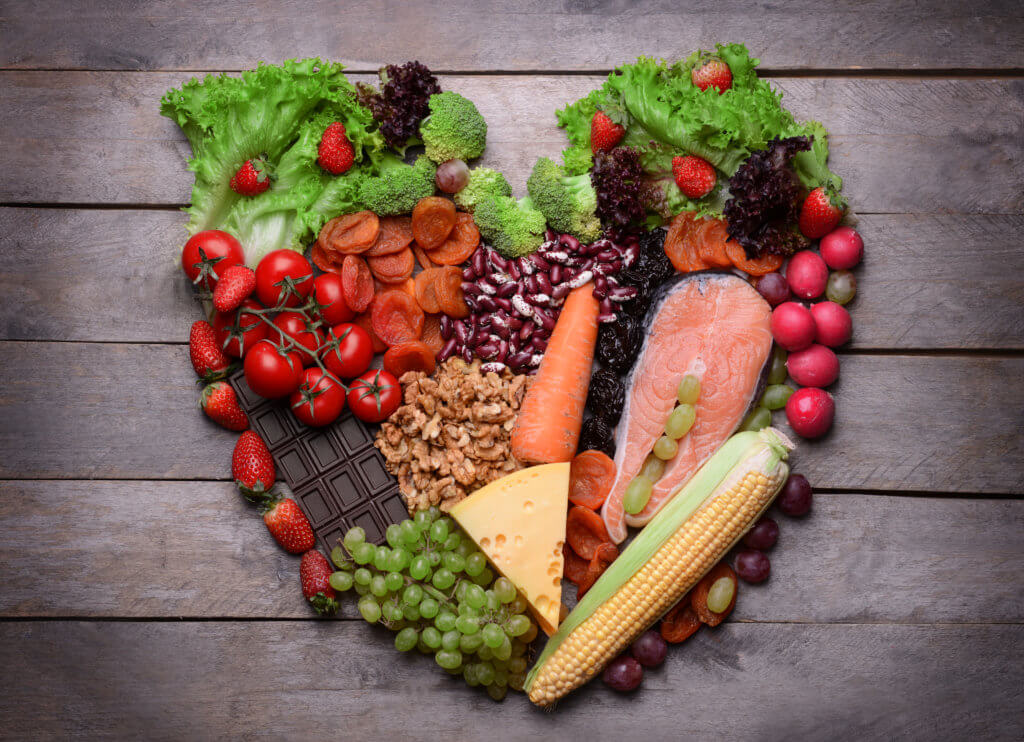Healthy Foods for Heart Health

What are the best foods for heart health?
1. Fatty Fish
Fatty fish such as salmon, mackerel, and tuna are rich in omega-3 fatty acids. Omega-3 fatty acids can help to reduce inflammation, lower blood pressure, and reduce the risk of heart disease. It is recommended to eat at least two servings of fatty fish per week.
2. Berries
Berries such as blueberries, strawberries, and raspberries are rich in antioxidants. Antioxidants can help to reduce inflammation and improve blood flow. Berries are also low in calories and high in fiber, making them a great choice for weight management.
3. Leafy Greens
Leafy greens such as spinach, kale, and collard greens are rich in vitamins, minerals, and antioxidants. They are also low in calories and high in fiber, making them a great choice for weight management. Leafy greens can help to reduce the risk of heart disease by improving blood pressure and cholesterol levels.
4. Whole Grains
Whole grains such as brown rice, quinoa, and oatmeal are rich in fiber and nutrients. They can help to reduce the risk of heart disease by improving cholesterol levels and reducing inflammation. It is recommended to eat at least three servings of whole grains per day.
5. Nuts and Seeds
Nuts and seeds such as almonds, walnuts, and chia seeds are rich in healthy fats, fiber, and protein. They can help to reduce inflammation, improve cholesterol levels, and reduce the risk of heart disease. It is recommended to eat a small handful of nuts or seeds per day.
6. Avocado
Avocado is a great source of healthy fats, fiber, and potassium. It can help to reduce inflammation, improve cholesterol levels, and reduce the risk of heart disease. It is recommended to eat half an avocado per day.
What are the benefits of a heart-healthy diet?
A heart-healthy diet can help to control weight, blood pressure, and cholesterol levels. It can also reduce the risk of heart disease, stroke, and other chronic diseases. A healthy diet can also improve energy levels, mood, and overall well-being.
Benefits of a Heart-Healthy Diet:
- Controls weight
- Lowers blood pressure
- Improves cholesterol levels
- Reduces inflammation
- Reduces the risk of heart disease, stroke, and other chronic diseases
- Improves energy levels, mood, and overall well-being
What are the potential drawbacks of a heart-healthy diet?
A heart-healthy diet can be more expensive and time-consuming than a typical Western diet. It can also be more difficult to eat out and socialize with friends and family. Some people may also find it difficult to adjust to the taste and texture of new foods.
Potential Drawbacks of a Heart-Healthy Diet:
- More expensive
- More time-consuming
- Difficult to eat out and socialize
- Difficult to adjust to new foods
Conclusion
A heart-healthy diet is important for maintaining good health and reducing the risk of heart disease. By incorporating foods such as fatty fish, berries, leafy greens, whole grains, nuts and seeds, and avocado into your diet, you can improve your overall health and well-being. While there may be some drawbacks to a heart-healthy diet, the benefits far outweigh the costs.
FAQ
1. Can I still eat meat on a heart-healthy diet?
Yes, you can still eat meat on a heart-healthy diet. However, it is recommended to choose lean meats such as chicken or turkey, and to limit red meat consumption.
2. Is it necessary to take supplements on a heart-healthy diet?
It is not necessary to take supplements on a heart-healthy diet if you are getting enough nutrients from your food. However, if you are not able to get enough nutrients from your diet, supplements may be necessary.
3. Can I still eat dessert on a heart-healthy diet?
Yes, you can still eat dessert on a heart-healthy diet. However, it is recommended to choose desserts that are low in sugar and saturated fat, such as fruit or dark chocolate.
4. Can a heart-healthy diet help to prevent other chronic diseases?
Yes, a heart-healthy diet can help to prevent other chronic diseases such as diabetes, cancer, and Alzheimer's disease.
